Every week we receive at least 2 emails from people who want to start their own tequila brand, looking for guidance on how to get started. This isn’t really part of what we do—we’re focused on tasting, education and providing information on existing products. So, we thought we’d put together the advice we usually give to aspiring brand owners, all in one place.
10 Reasons Why You Should Just Say No
1. You are likely to lose millions of dollars.
So, you want to start your own tequila brand? We love tequila, so we get it. But we can’t consciously advise you to do this, given that it is a risky, risky investment. Don’t believe us? Let’s take a look at some real world stats.
The Tequila Matchmaker database currently contains 2,345 different tequila brands. How many of these can you name off the top of your head?
In 2019 alone, we saw 181 new brands enter the market, and fight for shelf space with hundreds more. How many do you think are making money? Honestly, it’s hard to tell since so few are publicly-traded (and therefore have to release financials).
But you can ask yourself how many brands you see on your local retail store/bar shelves. Chances are, it’s the same 20 to 30 everywhere you go, and many of them are from big players that count on a large portfolio of products, and revenue sources.
So, fierce competition is one issue, now let’s talk about cost. If you want to start your brand in the near future, current agave prices alone should give you pause. At the rate of 28 pesos/kilo, a truck load of agave needed to fill a 25 ton oven would cost you around $36,000 USD.
That’s just for the main ingredient on one oven load.
“There has arguably never been a more difficult time to start a new tequila brand, given agave prices,” says Clayton Sczcech, a Mexico-based agave spirits specialist and consultant.
And even if you wait for agave prices to come down, be prepared for some more sticker shocks.
“This is a capital intensive industry,” says Tequila Fortaleza owner Guillermo Erickson Sauza. “When you get to 1,000 cases you realize you need more money to expand (for) production, inventory, barrels, facilities, marketing, and on and on!”

Let’s do the math. The largest expense right now by far is the cost of agave, with $11.33 USD for a 1 liter bottle of traditionally-made blanco tequila. If you want to cut costs, you could use a diffuser and save about $5.71 per liter. But for argument’s sake, let’s say you want to make a high quality, small batch, traditionally-made blanco tequila.
When you add in the cost of the packaging–even if you are going with cheap, standard bottles, labels, and caps–and add in excise taxes, distillery fees, and harvest and transportation, you are looking at approximately $15.86 USD in costs just to make your product.
Then you have to factor in the markups that occur at the distributor and retail levels. That brings the price tag to about $25.40. This does not include the cost of marketing, PR, your time, travel expenses, sample product to give away, or salaries. Let’s assume that you’ll need to add $10/bottle to cover those expenses because you’re not going to be selling at large volume immediately. Now you’re looking at approximately $35 USD before you can start turning a profit.
Now take a look at the tequilas you’re competing against in the $35-$45 USD range. Can you afford to play this game?
Ok, so maybe you have deep pockets and are willing to finance your brand for the medium to long term. Then, proceed…
2. It’s almost impossible to differentiate yourself in the market.
Ask Yourself “Why?” Why does your brand need to exist?
There are so many tequilas on the market these days you really have to ask yourself what niche your new tequila would fill. What would make it different than what’s already available?
“Great tasting juice and an attractive package, those are table stakes,” says Greg Cohen, a Dallas-based marketing advisor who specializes in spirits brands. “The challenge is to demonstrate how and why your brand satisfies an unmet need in the market,” he adds.
What about a quality, affordable tequila? There are a handful of tequilas that are already doing a pretty good job of that. A luxury tequila for people who like a lot of wood (perhaps whiskey lovers)? That category is overflowing with contenders.
There’s always room for a high-quality, traditionally made tequila with unique aromas and flavors in our opinion, but that’s not necessarily the quickest path to mass market success, so if you go that route you have to have passion and patience.
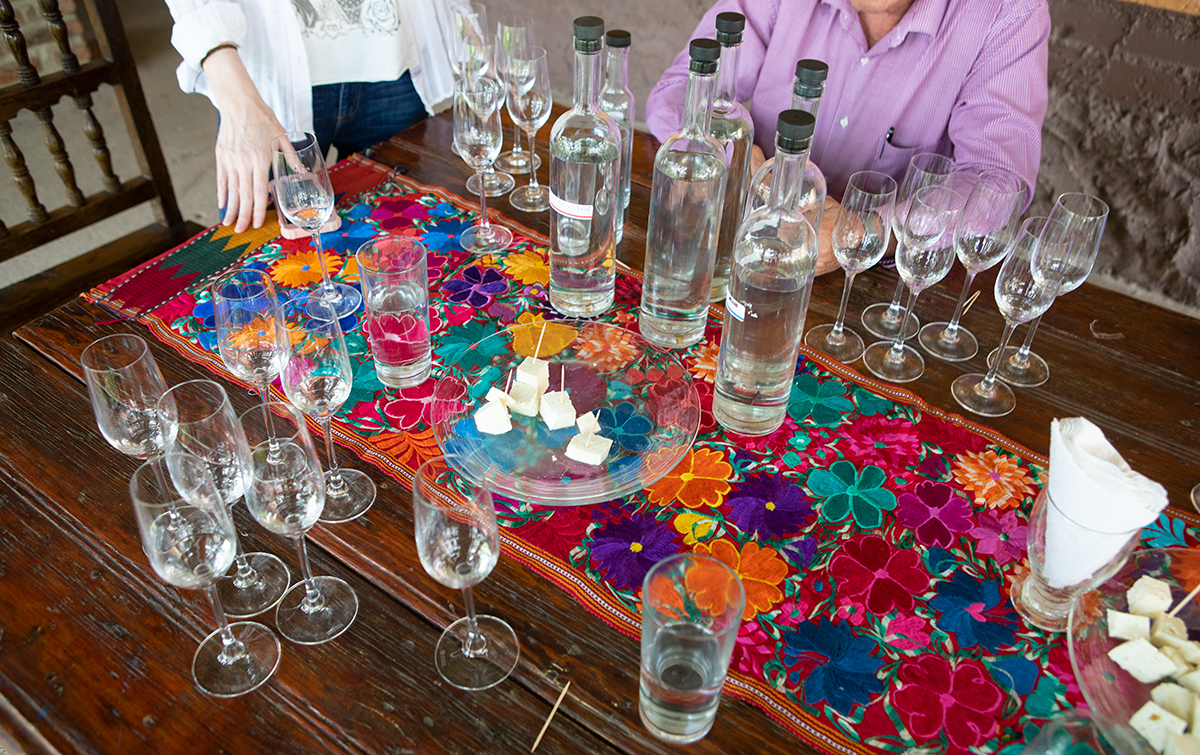
3. There is a long and steep learning curve ahead.
So, you’ve figured out why your tequila should exist, do you know how it should be made? There are a variety of both traditional and industrialized processes in use that can radically affect your final product.
Whether you are going to build your own distillery, or contract out an existing one, you need to know about the different kinds of tequila making processes. Don’t try to do all your research online. You have to come to Mexico, visit distilleries, meet tequila producers and really see how things work — and taste! — on the ground.
And a big part of this is “understanding the dynamics of the agave price cycle and its relationship to various types of tequila production”, Szczech says.
This is because when you make your tequila, and how you make it, not only affect your costs and quality, but also the industry at large. Producers who choose an industrialized diffuser process tend to use younger agaves, taking them out of the market before traditional producers—who rely on mature agaves for their higher sugar content and flavor complexity—can use them.
Which kind of producer will you be? Start by identifying which brands you like, and learning about what it takes to make a quality tequila.
But that’s not all. You’ll also need to learn about the complicated tequila regulations in Mexico, how to register your brand name, and how to get your labels approved by both the USA and Mexico.
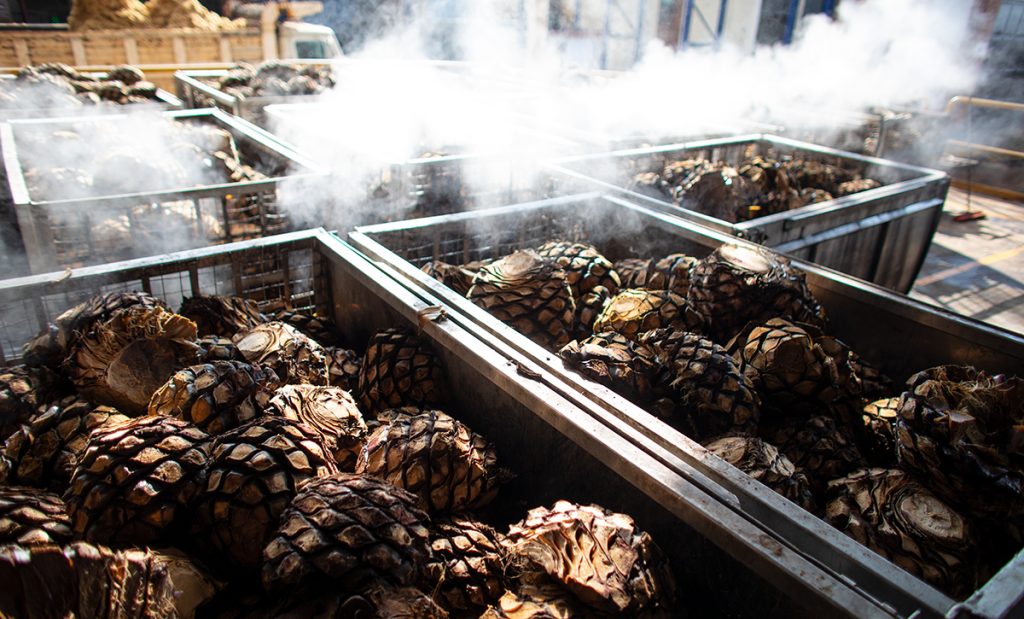
4. You need to get into the weeds on tequila production processes.
If you want to create a quality product, you will have to learn how tequila is made, how to taste and evaluate it, and understand the profile you want and what is required to achieve it. This takes time and at least one patient tequilero willing to take you under their wing. Otherwise, you could end up being taken advantage of.
A jaded note here: “Sweet” and “smooth” are overplayed. Added vanilla is, too. Beware of additives (and know the difference between a tequila with natural aromas and flavors, and those that rely on added sweetener, caramel color, glycerin, and agave ‘flavors.”) Taste everything, from popular mass-market brands to small producers. Ask questions, such as “Why does this tequila have more agave in it than others?”; “What’s the difference in the process and the agaves used?”
Every brand will start with some sample runs, and knowing what you are tasting and what you (and your potential customers) like will be essential.
5. The search for a tequila distillery is not easy.
If you don’t have your own distillery, you need a partner. This can be complicated, especially if you don’t speak Spanish. According to the Tequila Matchmaker distillery database, there are currently 135 active tequila distilleries in Mexico. Finding the right one is not easy because each distillery is unique.
You’ll need to start by doing your homework. Which distilleries are capable of producing the flavor profile you are interested in? You can start your research by scanning through our tequila distillery rankings to get an idea of the overall quality of the tequila they are producing, based on ratings from Tequila Matchmaker app users.
Once you find one you like, will they even give you the time of day? Not all distilleries are willing to “white label” their product.
And the distillery owners we know who make great, traditionally-produced small batch tequilas are few, and cautious when taking on new brands. This is for a good reason: they have to be worth the time and effort because their reputation is also at stake.
“I want to know that (a new brand partner) has the right motivation and a partnership with them will be sustainable,” says Salvador Rosales, Jr. of Tequila Cascahuín. His family distillery gets a lot of interest from would-be brand owners, but their small-batch, artisanal approach means they have to be very selective.
For example, one brand that made the cut is Siembra Spirits, the owner of the highly respected Siembra Valles tequilas. Brand owner David Suro is a well-known advocate for small batch artisanal products, and his support for agave farmers and integrity was a match for the values held by the family owners at Cascahuín.
Are you ready to be a good partner?
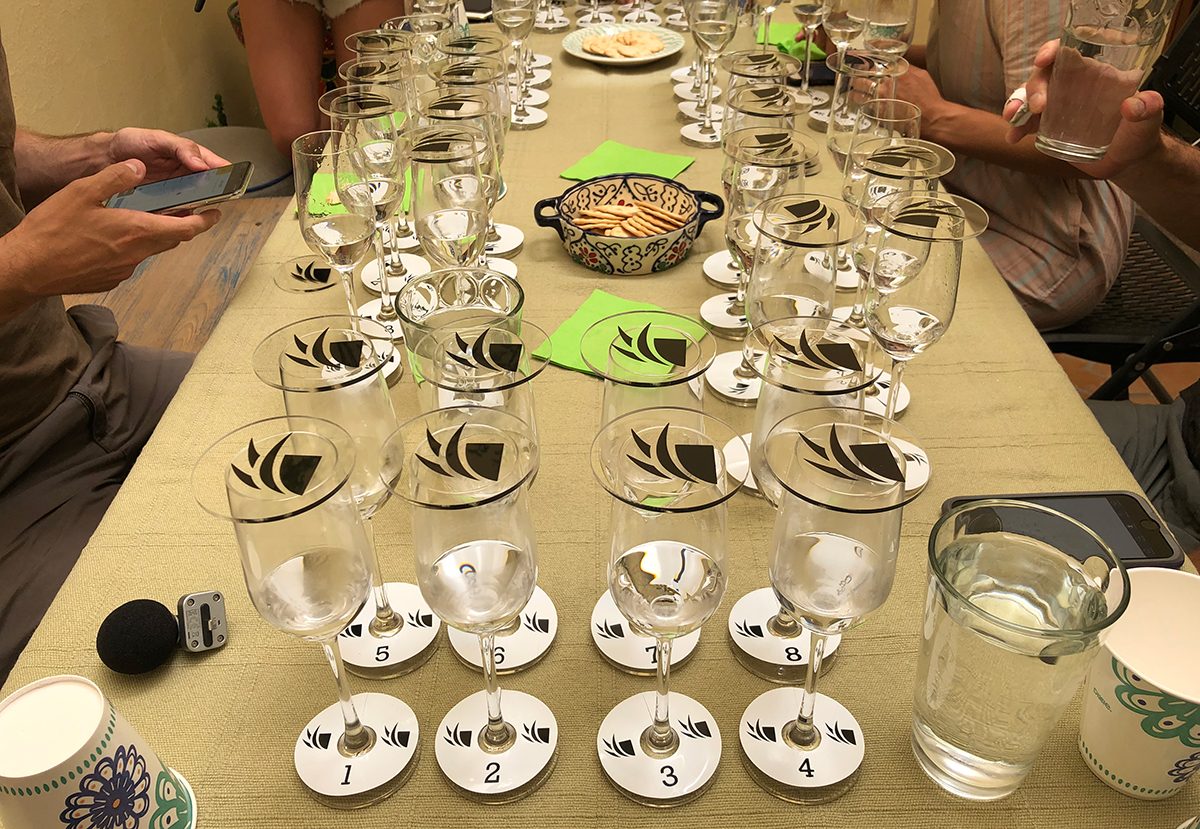
6. It’s not all about you. You will need to do some objective product testing.
It’s not a good idea to rely solely upon your tequila preferences, or even that of your friends. If you’re going to sink millions of dollars into this, you need to be certain that the tequila in your bottle is what it needs to be. Objectivity is critical.
Assuming you are going to contract out an existing distillery, before you sign any contracts, you should get a good idea of what you’re likely to expect once your product is done. You can start by checking a distillery’s reputation by looking up the ratings of all the products they produce. The easy way to find this out is to do a tequila NOM search on Tequila Matchmaker, and drill down into each of the brands and products from that distillery.
You’ll also want to try the distillery’s products yourself. Each distillery has its own particular style and you should see some similarities, even between different brands. You can do this without stepping foot in Mexico. Instead of asking them to send you samples, buy some of their products retail to get an idea of what they’re already releasing in the market.
Distilleries that white label will often sell you pre-made, bulk tequila they’ve got in storage. If you aren’t interested in creating your own batch, that’s an easy solution.
But if you want to create your own small batch, one that matches the flavor profile you have in mind, there’s another layer of work ahead of you. This is why it’s so important to know how to taste, and what kind of profile you want.
This is usually difficult for people new to the tequila world. In the past we have helped would-be brand owners identify their ideal tequila profile (and pinpoint a suitable distillery in the process) through private blind taste test consulting using our matching technology. If this is something you’re interested in, contact us.
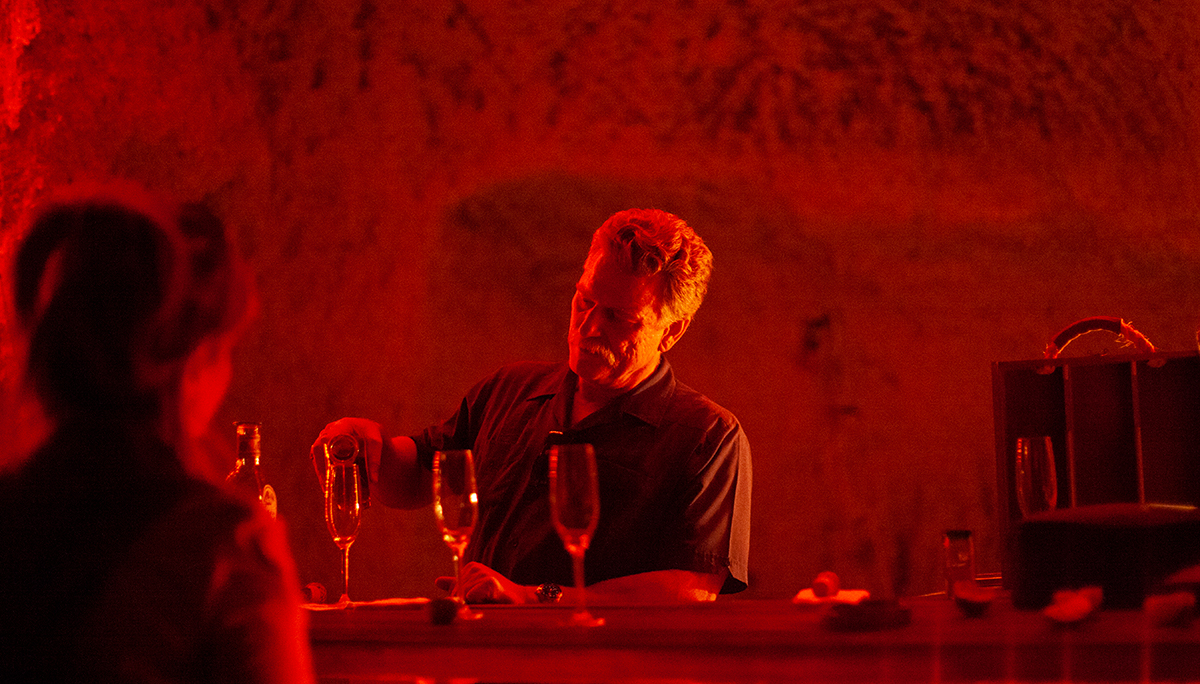
7. You need to have a unique and compelling story if you expect anyone to care.
As any good marketer will tell you, you have to have a great story. “I love tequila so I decided to make one“ might be true, but it’s not a compelling story.
However, if you happen to be born into a tequila dynasty and you missed your chance to inherit the company from your famous grandfather who sold it to a big corporation before you were of age, but you went out, earned money, and took back your grandfather’s nearly 100-year-old distillery, fired it up again, and found it made great tequila, then you’d be onto something. (Wink to Guillermo Erickson Sauza because that is an unbeatable story.)
Ok, so you weren’t fortunate enough to be born into a tequila dynasty (neither were we!) Now what do you do? Go back to your “Why.” What makes you passionate about doing this project?
Just as an aid, here are the “stories” we’ve heard a lot recently. (Hint: Look for something different.)
“I bought the recipe from an old family in Mexico that was the original ________ brand.”
“The master distiller at our brand used to work for ______. He/she; was the secret of their success.”
“I created a true sipping tequila to change people’s minds about tequila from their college experiences.”
“I am creating a tequila for women.”
“I’m creating the Tito’s Vodka of tequila.”
(The last 3 are not actually stories, but product descriptions. You should know the difference!)
8. You will need to be detail-oriented and media savvy.
Bloggers, aficionados, early adopters, and some members of the media will want unique production details. Have them.
Mezcal producers have done a great job of listing production details on their labels, and now there is an expectation that tequila producers will offer the same level of transparency. This is also a great way to highlight how your product is different and unique.
Here’s a word of advice from us (bloggers): Know how your product was made and be able to explain how yours is different. If you can’t get us excited about it, it’s probably because there’s nothing new about it. If it tastes like everything else made at that distillery, we won’t need to try it. We already know.

9. You will need to know your target market, and how you’re going to reach them.
With so many competitors fighting for attention, marketing is crucial. If your particular area of expertise doesn’t include marketing, this is the time to contract out. Get in touch with experts who know how to reach tequila consumers. Even if you make the best tequila in the world you’re not gonna go far if people aren’t driven to try it. It’s also not going far if people can’t find it.
“In addition to creating a compelling brand story, it’s just as important to clearly identify and articulate how your tequila fills a void in a distributors’ portfolio, and how it fits a need behind the bar,” says Cohen.
All tequila drinkers are not created equal, so it is critical that you know which segment of the market you are going after. If you are looking to produce a cheap tequila to be served in bars as a well product in a nightclub, for example, you won’t be able to target aficionados and bartenders with that same product.
If your product uses the diffuser/yeast accelerants/column still/additives production process, you’ll find it difficult to get bartenders and aficionados to take it seriously.
So, that brings your next challenge…
10. Finding an importer and a distributor depends on all of the above.
Remember, you’re competing for their attention with 180+ new brands every year.
If you can’t provide a stack of purchase orders and a fan following, distributors will see your brand as risky. Small brand owner, Frank Mendez, agrees that it’s hard to compete with the big brands.
“They can offer incentives to move product,” he says.
That’s why he and his wife Leticia tried to self distribute their family-owned brand, Gran Dovejo, for several years.
“It was nearly impossible,“ he said. Although the couple live near Sacramento and the Bay Area, which are good markets for tequila, trying to get a tasting time in restaurants was tough, and they had to take time off from their day jobs.
“In order to do it, you have to hire people, and we just couldn’t afford that,” he says.
Bars weren’t any easier. “Even if a bar was interested, and wanting to support a local brand, they were reluctant to open new accounts,” Mendez adds. Eventually, the family made a deal with another company to take over the distribution.
What about selling directly to consumers online? This sounds like the easiest idea, but there are laws in the United States that make it difficult to impossible, and vary state to state. This is because of the Prohibition Era three-tier system in the US where importers and producers can only sell to distributors, who sell to retailers, who then sell to consumers. It is illegal to do business in more than two of those tiers.
This means it would be illegal to make or import, then distribute, and sell your own tequila directly to consumers. For example, a bar owner couldn’t legally make their own liquor, and then sell it directly to customers.
By now you can probably see why we would not recommend starting a tequila brand—the expense, time, legal issues, and competition make this market as risky as buying a $5 million lottery ticket.
“Even with millions to invest, access to distribution, effective marketing, and quality juice, (would be brand owners) will also need a lot of luck, “ Sczcech says.
“If they aren’t coming from inside the industry, the odds will be stacked against them as they compete with global firms who can operate on razor-thin (or negative) margins and legacy brands with rabid followings.”
Guillermo Erickson Sauza agrees. “Most brands fail,” he says.
You still in? The answer most likely is yes, since almost all of the people who receive our advice think it doesn’t apply to them, and that they cannot fail because they have a “great bottle design” or “connections” or “an amazing name”, or “a secret recipe”, or they are “willing to put in the hard work.”
¯\_(ツ)_/¯
If you insist, you will need help, and in areas you haven’t realized yet. So if you’re just getting started, don’t waste your precious time contacting us because all we will be able to do is reply with “good luck” and provide a link to this story.
But, some help can be found with these trusted contacts:
– Clayton Sczcech, is a Mexico-based agave spirits specialist and consultant. If you’re looking for a super knowledgeable tequila tour guide to give you well-informed and researched information about the tequila industry, its people and culture, we highly recommend connecting with him. It will be the best money you’ll spend in your venture.
– Gonzalo Spindola is a consultant who specializes in all aspects of tequila production for small brands. He has helped several new brands navigate the complex processes (label approvals, bottle sourcing, distillery introductions), and can act as your local contact in Mexico.
– Pancho Castillon is a well-connected personality in the tequila world. If you need a driver who is also a guide to take you around to all of the distilleries during your research phase, you “Better Call Pancho.” One day with him and you’ll feel like you have been best friends forever.
– Greg Cohen is an expert in tequila PR and marketing. Based in Dallas, TX, he helps brands fine tune their stories and marketing pitches and has a list of influential media and industry connections a mile long. For those who want to get serious, he’s your guy. A total pro.
– Ana María Romero Mena specializes in creating tequila aroma and flavor profiles. She is a master distiller who has created profiles for a long list of tequila brands. She is known as an expert in sensorial detection, and has trained many people in the industry on how to identify the wide array of aromas and flavors found in tequila.
– Jaime Villalobos Sauza is a master distiller who specializes in creating profiles for brands who don’t want to use additives. He is trustworthy, speaks perfect English, and has a great knowledge of the entire tequila-making process.
How we can help.
After you have a product, we’re happy to help by testing your profile and getting the word out. When you’re ready, take a look at our list of tequila brand marketing programs.
Good luck.
Photo (above): Yesenia Cisneros, an employee of the Nuestros Dulces tequila store in Tlaquepaque, Jalisco, Mexico, walks among the 1,800+ different tequilas currently for sale at the store. Yes, that’s a lot of competition for new brands. Are you sure you want to do this?


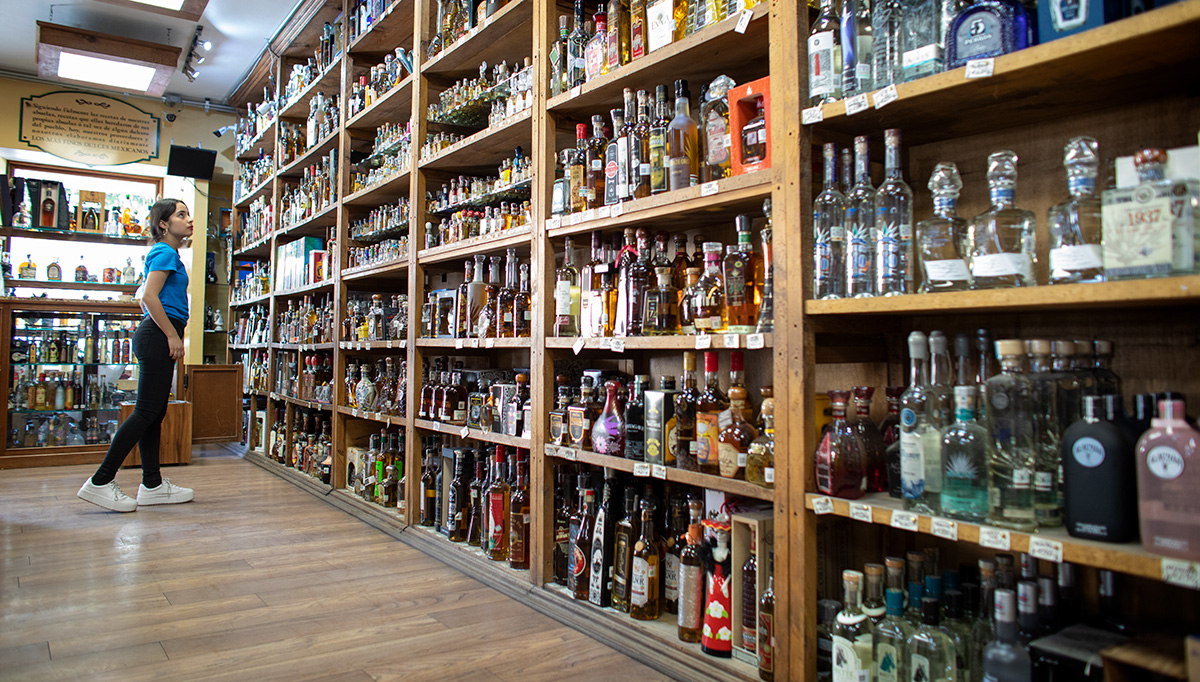
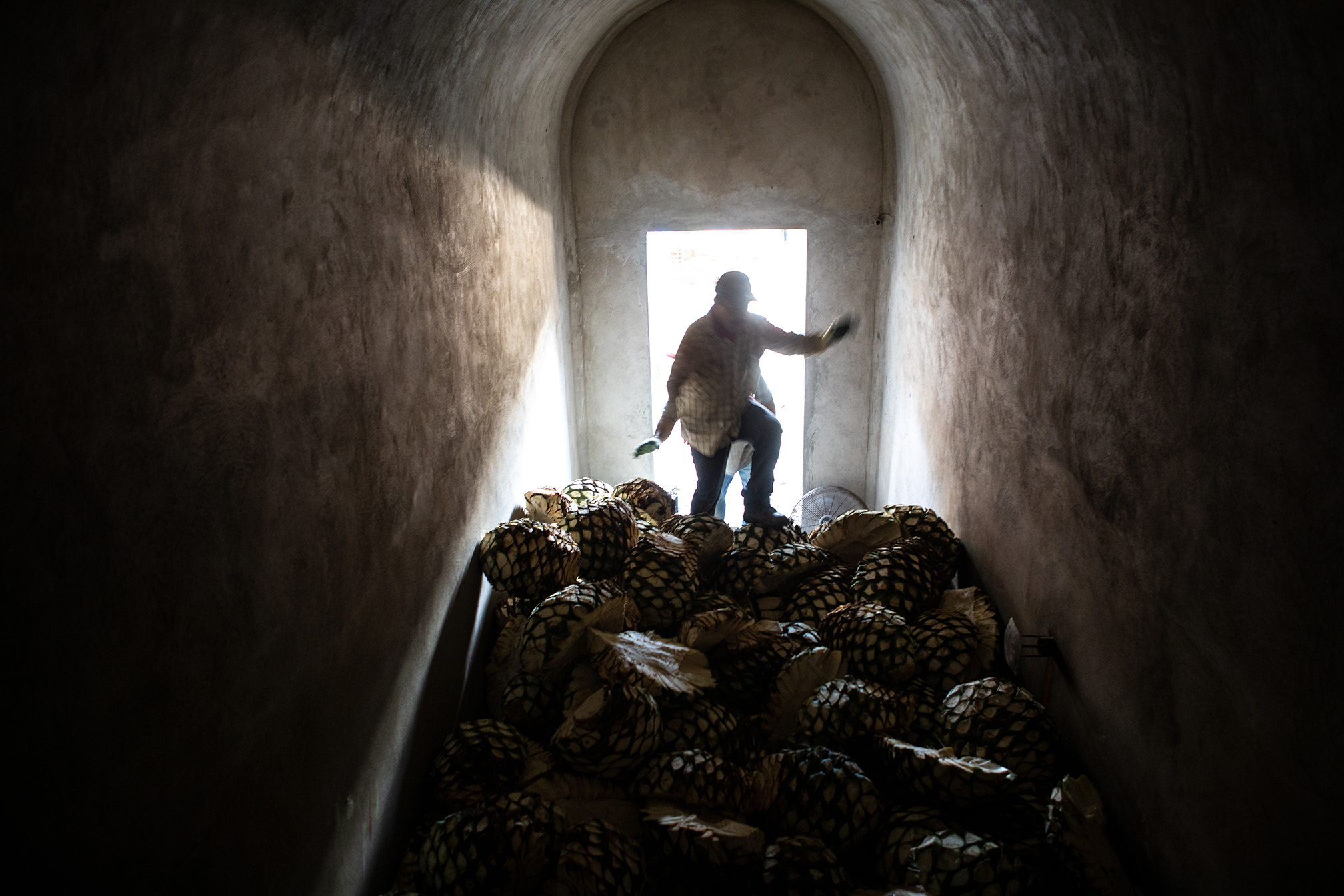
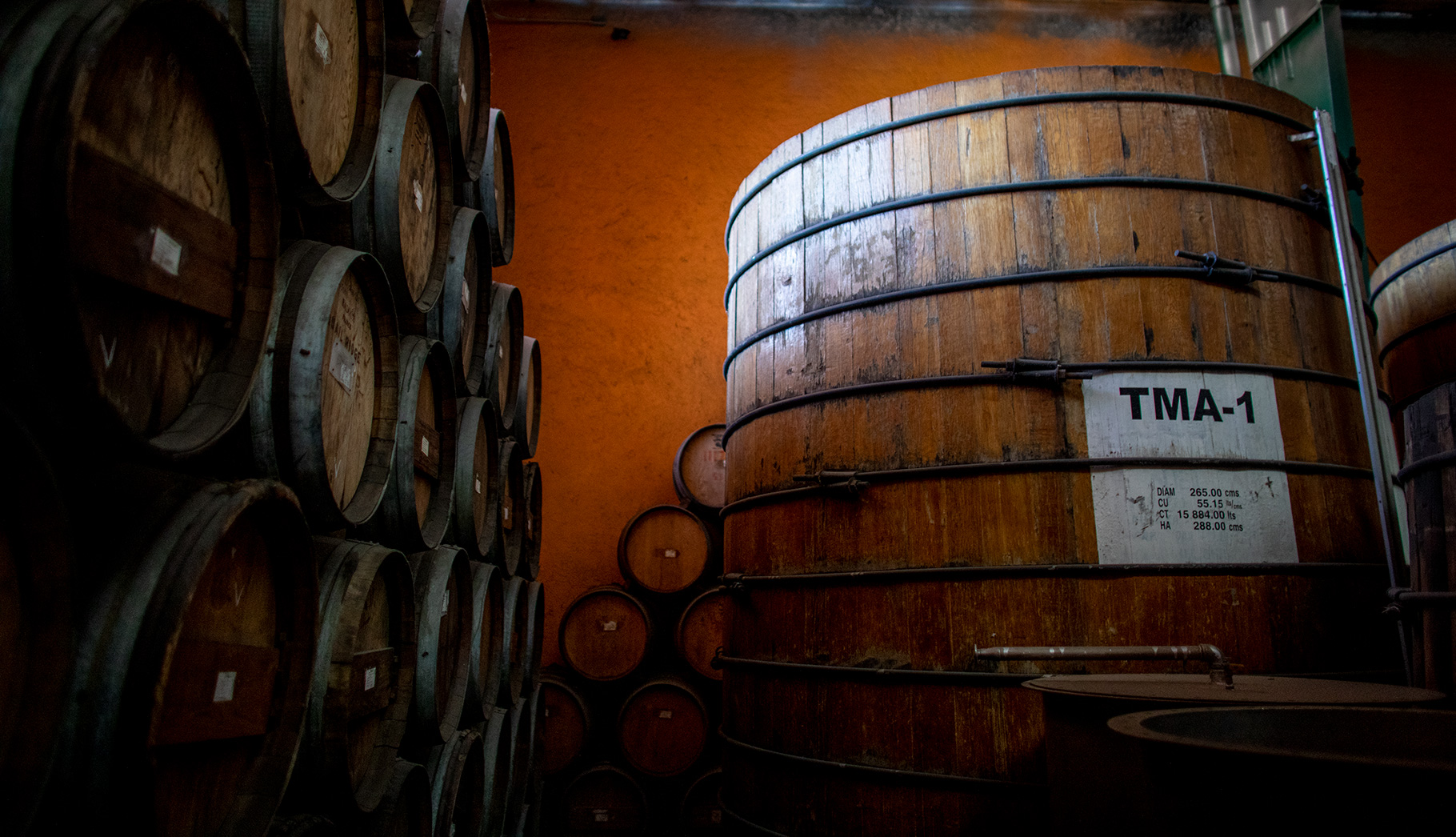
This is an amazingly detailed, heavily researched informative and interesting article. We’ve come to expect nothing less from Grover and Scarlet Sanschagrin. This is and should be, “The Bible” for anybody trying to start a tequia brand. – Lou Agave of Long Island Lou Tequila
Extremely accurate Grover and Scarlet, thanks. You mention most of the questions we ask our clients before starting a project.
Starting a new brand is always riskier if you don’t have these things figured out.
excelente artículo, felicidades Grover
No estoy de acuerdo que sigas satanizando el difusor Grove.
Si te gusta el tequila hecho con difusores y aceleradores de levadura y alambiques de columna, entonces hay muchos productos en el mercado para que elijas. La buena noticia es que generalmente están disponibles a un precio bajo. No demonizamos el proceso. Simplemente pensamos que pretender que este tipo de proceso es “pequeño lote” o “artesanal” es engañoso para el público.
Gracias por darle seguimiento a mi comentario Grover , cuando gustes platicamos y nos ampliamos mas sobre el tema estoy ennun excelente grupo de conosedore. El arte del tequila es mas q solo una parte del.proseso.
Saludos.
Thanks for another great and insightful article Grover. I remember our Cliff Notes version interchange on this subject last year. This is a sobering but needed reality check for all of us who have discovered a great new world of tequila and are looking for ways to be a part of something truly great.
Please continue to provide these insights as they are well written, engaging and educational. Our group has moved on from our tequila making dream…wanna buy a llama? ;)
All the best to you and Scarlet
Hi Bruce. Nice to hear from you again. We always appreciate your support!
I’m rarely intrigued by blogs but this topic was a must read. Not sure if you meant to do this, but us passionate entreneurs love these types of challenges. I’m ALL in! Thank you for the valuable insights into the tequila market and I’ll be contacting you to discuss marketing options with Taste Tequila.
Thank you Grover&Scarlet for the great informative article. Thx to you guys and Lou, ı went from being an ignorant pretty bottle fanatic to becoming a true fan of quality tequilas. I always double check with your website before I purchase an unknown product. Please, I beg you, stay neutral&objective for people like me who look for true and valuable information. I appreciate you and all the houses which provide us with this incredible& priceless juice. Yours truely, Cem from Turkey.
Nice Grover & Scarlet!
Great article !
I’ve been enjoying tequila since 1998, and I’m a woman, so I don’t think I’ll be rushing out to try a “tequila for women” that someone thinks they need to develop. (eyeroll) I wonder if they will be incorporating the word ‘skinny’ into the name?
Hola me gustaría crear mi marca de tequila me gustaría que me tuestan a lograrlo
¡La mejor de las suertes para ti!
A very sobering, but informative reality check. Spirits, whether tequila or vodka, seem to be a timeless consumable that will be around for a while. Once the pandemic is under control, I want to venture to Jalisco and explore the possibilities. Worse case scenario, I will come back with a hangover and 10 extra pounds to lose. The gyms should reopened by then. I look forward to learning and experiencing.
Well written and truthful article. Thanks for sharing.
No creo que sea fácil, pero tampoco imposible yo en lo personal el decir no por que existen 180 marcas no puedes y bajarle esos ánimos a emprendedores no creo que sea lo correcto, yo tengo una agencia de marketing digital y antes de montar mi agencia investigue y encontre mas de 200 agencias de marketing que ofrecen lo mismo que yo, pero eso no quiere decir que no puedas por que tienes mucha competencia eso es absurdo de todo producto o negocio que deseas implementar siempre encontraras muchísima competencia, pero solo es cuestión de trabajar duro para encontrar el camino del éxito.